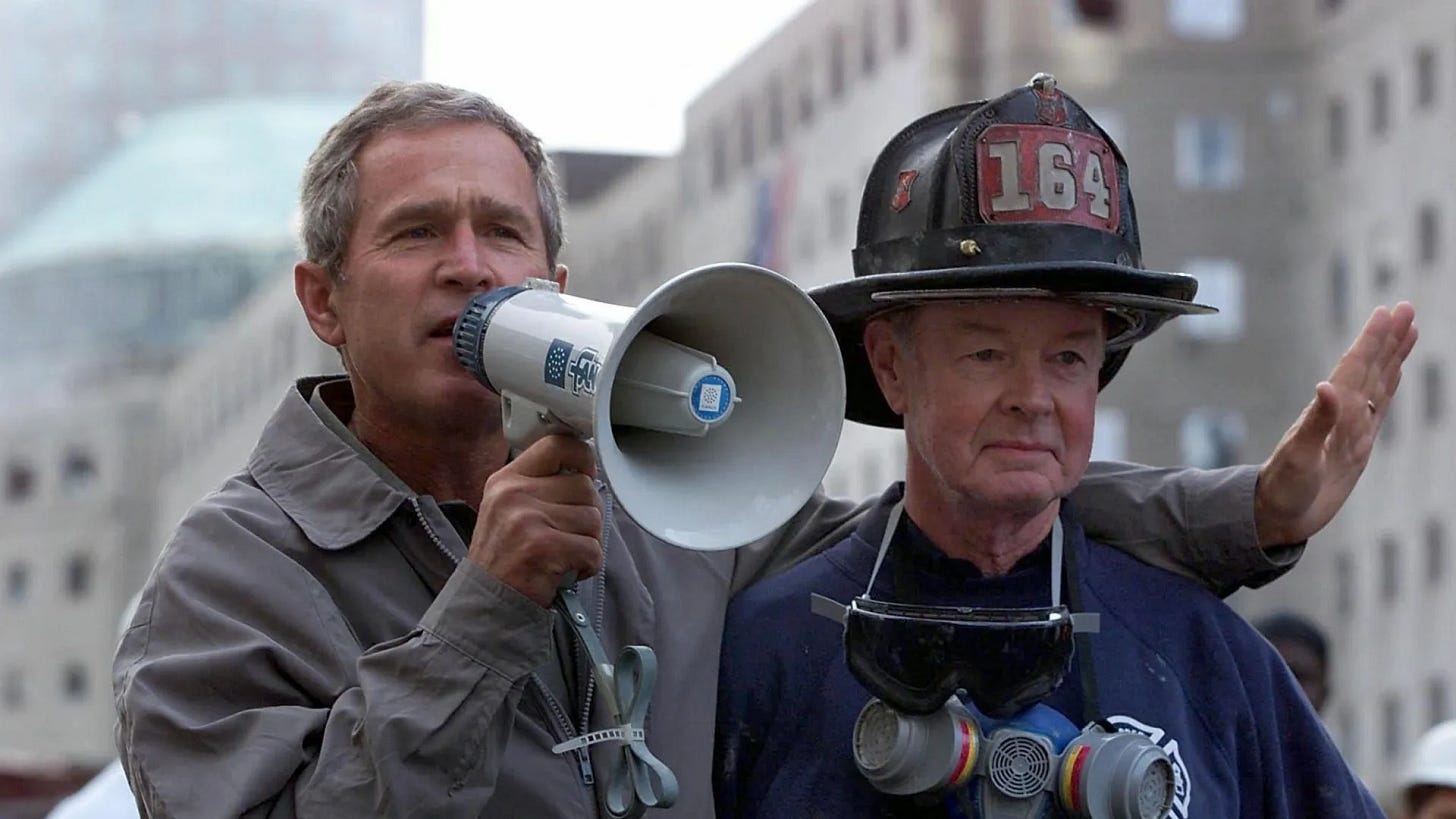What if another "9/11" were to take place today?
Speaking bull-ony into a bullhorn
My recent visit to the “Flight 93” site in rural Pennsylvania, and its strange, eerie, vaguely Lovecraftian “Tower of Echoes” monument, served as a reminder that many still un-ironically buy into the official story of the “9/11” event. Nevertheless, as the 22nd anniversary of that date approaches, I find myself contemplating the question, “How would America react to another ‘9/11,’ were it (God forbid) to take place, in some form or fashion, now?”
And I find myself answering myself thusly: “America would react quite differently indeed were another ‘9/11’ to happen now.”
******************
One score and two years ago, after all, things were quite different from the way things are presently. This change is not limited to superficial or cosmetic aspects like fashion and slang parlance, and it goes deeper than what is typically noticed when people watch footage from twenty or more years ago (with, “Look, people weren’t staring at their phones all the damn time!” being by far the most ubiquitous observation). No, the American public at the turn of the millennium was still, generally speaking, trustful of authority.
“Trustful, generally speaking” is of course not the same thing as “trustful, full stop.” The qualifier I used above was, I mean, quite purposeful on my part. By 2001, it is fair to say that cynicism had crept in a great deal with respect to how Americans viewed their national institutions and appointed leaders. Half a century earlier, the vast majority of Americans strongly trusted both the repositories of cultural authority, and the spokesmen and representatives thereof. For a variety of reasons not directly relevant here, that trust had largely vanished by the start of the 21st century. By 2001, it had become common to view politicians, academics, and media figures as scoundrels or charlatans. Yet, that said, one still didn’t generally think that the ruling class actively intended harm to the general population.
Thus, when we were presented with the official story of “9/11” by the repositories of information and authority on September 11, 2001, we overwhelmingly believed what we were told. The notion that our own government could in any sense be complicit in this atrocity was rejected out of hand and fiercely denounced by nearly everyone. In retrospect, it seems to a growing number of people, myself included, that we were horribly naive and dreadfully shortsighted to reach such immediate and unmerited conclusions, yet the truth is we did so reflexively, because the official story struck us as not merely plausible, but eminently believable, since to think otherwise would mean accepting what we then couldn’t accept: namely, that our appointed leaders might actively set out to do us harm.
If, today, another “9/11” were to take place, however, it would take no time for the official story to be questioned, and subjected to intense scrutiny. Of course, many would still reflexively trust the political establishment/mainstream media’s account of events (as it seemed to me that most of my fellow “Flight 93” site sojourners and pilgrims still believed the manifest absurdities of the reported “Let’s roll” account of the reported “plane crash” in Shanksville), but I suspect that those “many” would still be far fewer than the number who unthinkingly bought the stuff-and-nonsense sold to us as fact on September 11, 2001.
**************************
The contemporary loss of trust in authority is both a great thing and a terrible thing. It is great, because it displays that a public awakening is indeed underway. But it is terrible because such horrific knowledge is both loathsome to contemplate and painful to carry. But such is the burden of truth.
Andy Nowicki is the author of several books, most recently The Insurrectionist and Muze. Visit his Youtube channel.


I don't know, Andy. Covid was a 911 and look how many fell for it.